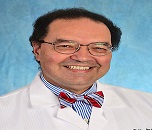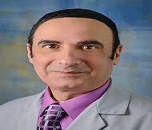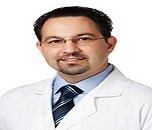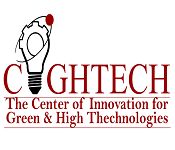Current biological and medical advances have analyzed the mechanisms of chronic liver inflammation and were succeeded in coming up new therapies for several liver diseases. The focus of this issue is to sum up the present status of the basic and clinical findings in chronic liver inflammation and its complications. Such information will help to develop better management programs for patients and can improve their prognosis.
-
Nonalcoholic steatohepatitis
-
HCV Gentotype-4 disease
-
Hepatitis C
-
Potpourri
Gastrointestinal Immunology primarily centre around separation of gut-related lymphoid tissue, guideline of natural and versatile invulnerable cell separation and work, hereditary and epigenetic factors controlling safe reactions and aggravation. It therefore gives thought regarding the clinical exploration, clinical preliminaries and the study of disease transmission concentrates on gastrointestinal incendiary illnesses however not restricted to gluten-touchy enteropathy, fiery entrail infection, and gastritis, malabsorption disorder, the runs, gastric and duodenal ulcers and sickness of the salivary organs barring cystic fibrosis.
-
Immune homeostasis
-
Immune dysregulation
-
Inflammatory Bowel Disease
Irritable bowel syndrome (IBS) is a disorder that strikes the large intestine. IBS Signs and symptoms are cramping, abdominal pain, bloating, gas, and diarrhea or constipation. It is a chronic condition that lasts long. Small number of people with IBS has serious signs and symptoms. Some of them can manage their symptoms by controlling diet, lifestyle, and stress. Severe symptoms can be treated with medicine and counselling. It does not cause changes in bowel tissue or increase risk of colorectal cancer.
-
Hypnotherapy
-
gastroenteritis
Liver Cirrhosis is a complication of liver disease that involves loss of liver cells and unrepairable damage of the liver. Common causes of cirrhosis are Alcohol and viral hepatitis B and C, although there are many other causes. As cirrhosis grows repeatedly scar tissue is formed , making it difficult for the liver to function properly.
-
Fibrosis
-
End-stage liver disease
Liver imaging is predominantly for diagnosing biliary tract issue and is essential for detecting liver injuries or damage and patients with a suspected malignancy is important because the liver is the common site of metastatic spread and those who are at the risk of developing hepatocellular carcinoma.
-
Hepato-Diaphragmatic Interposition of Colon
-
Hepatic encephalopathy
Diverticular disease is a common condition in which small bulging pouch like structures (diverticula) or sacs develop in the wall of the large intestine (colon). Despite the fact, these sacs can be developed anywhere in the colon, they are most common in the sigmoid colon
-
Clostridium difficile
-
anastomosis.
A prolonged disease that is developed when acid or bile juice that is secreted enters the food pipe and causes irritation in the lining. Noticing the Acid reflux and Heartburn twice a week may indicates the a person has GastroEsophageal Reflux Disease (GERD). Symptoms like burning pain that occurs after eating and become more painful after lying down.
Cancers of the liver, bile duct, gallbladder, pancreas, large and small bowel, stomach, esophagus and rare tumors all comes under the Gastrointestinal Cancer symptoms. Study and treatment of these cancer signs comes under Gastrointestinal Oncology. These are also commonly called as Gastrointestinal or Esophageal Malignancy, which is found to be sixth normal disease on the planet and is continue expanding.
-
Neuroendocrine cancer
-
Esophageal cancer
Gastrointestinal Pathology is an area or branch of science that deals with the diagnosis and characterization of neoplastic and non-neoplastic diseases of the digestive tract and accessory organs, such as the pancreas and liver.
-
Peptic Ulcer Disease
-
Chronic Diarrhea
Gastrointestinal Radiology is the branch for the imaging of disorders of the digestive tract that is the stomach and intestines, the liver, the biliary tree, and the pancreas by using a wide variety of modalities, including Digital Radiography (X-RAY), Computed Tomography (CT), Ultrasound.
-
fluoroscopy
-
Endoscopic Retrograde Cholangiopancreatography
-
Colonoscopy
Pediatric Gastroenterology is suppressed with treating the GIT , liver and pancreas of infants from early stages to adulthood. Testing is completed by using PH Probes, Liver Biopsies, Breath Test, Endoscopic Procedure. The foremost point of the investigation of pediatric gastroenterology is corresponding down baby and kid pace of passings, control the spread of unbearable sickness, and advance solid ways of life for a long illness free life help facilitate the issue of kids and young people.
-
gastroesophageal reflux
-
neonatal bone disease
Gastrointestinal Disorders is the term used to describe any condition or disease that occurs inside the gastrointestinal tract. The gastrointestinal tract (also called the GI tract) is a series of hollow organs that combines and form a long continuous passage from our mouth to our anus. The organs that form our GI tract are our mouth, esophagus, stomach, small intestine, large intestine, and anus.
-
Stress management
-
Medications
-
Risk factors for heart disease
-
Chronic disease management
-
Outpatient Cardiac Rehabilitation
Digestive disorder is health problem that develops in the digestive tract. Conditions may vary from mild to serious. Some common problems are heartburn, cancer, irritable bowel syndrome, and lactose intolerance. Other digestive diseases include: Gallstones, cholecystitis, cholangitis Gastroenteritis, Ulcers, Hemorrhoids etc.
-
Advances in congenital heart disease
-
Cardiothoracic surgery
-
Angioplasty or surgery for multi vessel coronary artery diseases.
When an Inflammation or burning is caused in pancreas is termed as Pancreatic Diseases or Pancreatitis. Pancreatitis can start suddenly and last for days or can occur after many years. Main Causes includes gallstones and chronic, heavy alcohol use. Symptoms include upper abdominal pain, nausea and vomiting. Treatment usually requires hospitalisation. Once the patients are stabilised, doctors treat the underlying cause.
Exact cause of Inflammatory Bowel Disease (IBT) is still not found but it can be resulting in defective immune system. Main causes of IBT can be Family history or Genetics, Smoking, Environmental factors etc.
The gut microbiota provides essential capacities for the fermentation of non-digestible substrates like dietary fibres and endogenous intestinal mucus.Chronic diseases such as obesity, inflammatory bowel disease (IBD), diabetes mellitus, metabolic syndrome, atherosclerosis, alcoholic liver disease (ALD), nonalcoholic fatty liver disease cirrhosis, and hepatocellular carcinoma have been associated with the human microbiota.
-
Antibiotic-associated diarrhoea
-
Autoimmune diseases
-
Cancer
-
Diabetes
-
Gastric ulcers
-
Inflammatory bowel diseases
-
Obesity
Hepatitis refers to an inflammatory condition of the liver. It's commonly caused by a viral infection, but there are other possible causes of hepatitis. These include autoimmune hepatitis and hepatitis that occurs as a secondary result of medications, drugs, toxins, and alcohol. Liver disease is caused by disturbance in liver function resulting in illness.
-
Fatty liver disease
-
Cirrhosis
-
Liver cancer
-
Wilson disease
Gall Bladder stones are the most common disease and are usually asymptomatic. Biliary tract diseases are the diseases that affects the bile ducts, gallbladders and other organs that are involved in production and transportation of bile juice.
-
Gallstones and cholecystitis
-
Cholangiocarcinoma
-
Choledocholithiasis
-
Acute cholecystitis
Gastroenterology is the branch of medicine dealing with the digestive system and its disorders. Diseases affecting the gastrointestinal tract, which include the organs from mouth into anus, along the alimentary canal, are the targets where this disorder is observed. Physicians practicing in this field are called gastroenterologists.
-
Small intestine
-
Colon and rectum
-
Pancreas
-
Gallbladder
-
Bile ducts
-
Liver
-
Esophagus
-
Stomach
Gastrointestinal cancer is the malignant conditions of the gastrointestinal tract (GI tract) and accessory organs of digestion, including the esophagus, stomach, biliary system, pancreas, small intestine, large intestine, rectum and anus.
-
Smoking
-
Being overweight or obese
-
A diet high in smoked, pickled, or salty foods
-
Stomach surgery for an ulcer
-
Type-A blood
-
Epstein-Barr virus infection
-
Certain genes
-
Working in coal, metal, timber, or rubber industries
An upper GI endoscopy or EGD (EsophagoGastroduodEndoscopy) is a procedure to diagnose and treat problems in upper gastrointestinal tract. The upper GI tract includes yfood pipe (esophagus), stomach, and the first part of small intestine (the duodenum).
-
Endoscopy
-
Rod-lens endoscopes
-
Endoscope reprocessing
-
Colonoscopy
-
Gastroscopy
-
Advances in endoscopy
-
Augmented reality
-
Tools used during endoscopy
Gastrointestinal Pharmacology deals with the properties and actions of drugs affecting gastrointestinal system function. These drugs normalize impaired function in the GI tract.
-
Laxative drugs
-
Antidiarrhoeal drugs
-
Antispasmodic drugs
Gastrointestinal therapeutics includes drugs, which are commercially available in the market namely Aciphex, Afinitor, Akynzeo, Dificid, and Prilosec. Additionally, these disorders constitute a large proportion of outpatients and frequent hospital visits, globally.
Neuro Gastroenterology is defined as neurology of the gastrointestinal tract, liver, gallbladder and pancreas and encompasses control of digestion through the enteric nervous system (ENS), the central nervous system (CNS) and integrative centers in sympathetic ganglia.
-
Gastro-intestinal motility
-
Gastroesophageal reflux
-
Gastroparesis
The safety of upper gastrointestinal cancer patients in the SARS-CoV-2 outbreak is extremely important and most surgeons need to establish a contingency management.The COVID-19 outbreak makes surgical procedures extremely difficult to be performed. The most common criteria to prioritize patients for surgical treatment are stage, tumor biology, presence of tumor-related symptoms, the risk of tumor to become non-resectable, and time interval from neoadjuvant therapy. The multidisciplinary teams can help assigning a priority level to each clinical case.
Market Analysis
The global gastrointestinal therapeutics market size is expected to reach USD 65.1 billion by 2025, according to a new report by Grand View Research, Inc., registering a 6.6% CAGR during the forecast period. Growing geriatric population are prone to gastrointestinal indications is one of the key factors prospected to contribute to market growth. According to a report by WHO, nearly 694,000 deaths took place due to colon cancer in 2014.
A wide range of new generation therapeutics targets that include novel small molecules and cellular therapy are currently under inspection. These include tofacitinib, ustekinumab, mongersen, and vedolizumab. This influx is anticipated to be a consequence of high prevalence of gastrointestinal diseases globally. Vedolizumab is emerging as a first-line biologic therapy for Crohn’s disease. Currently, the U.S. FDA has approved Humira, Amjevita, Cimzia, Remicade, Renflexis, Inflectra, Tysabri, and Entyvio for the treatment of Crohn’s disease.
Top Gastroenterology companies
Allergan Pharmaceuticals
Boston Scientific
Cogentix Medical
EndoChoice
EndoGastric Solutions
Evoke Pharma
Exact Sciences Corp. (colorectal cancer)
Fujifilm Medical Systems USA
gMed, a Modernizing Medicine Co.
Interscope
Johnson & Johnson
Motus GI
Olympus Corp. of the Americas
Pentax Medical USA
Physicians Endoscopy
Synergy Pharmaceuticals
Salix Pharmaceuticals
Shaili Endoscopy
Takeda Pharmaceuticals USA
US Endoscopy Group

















